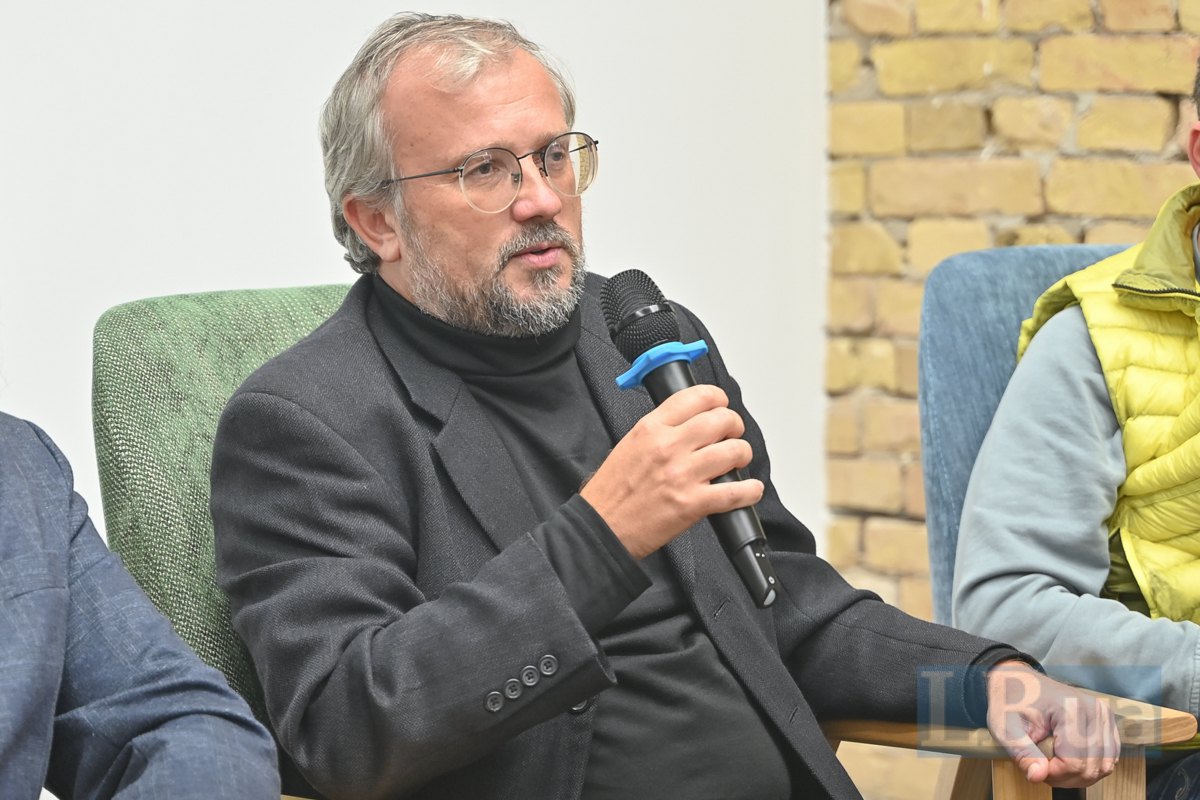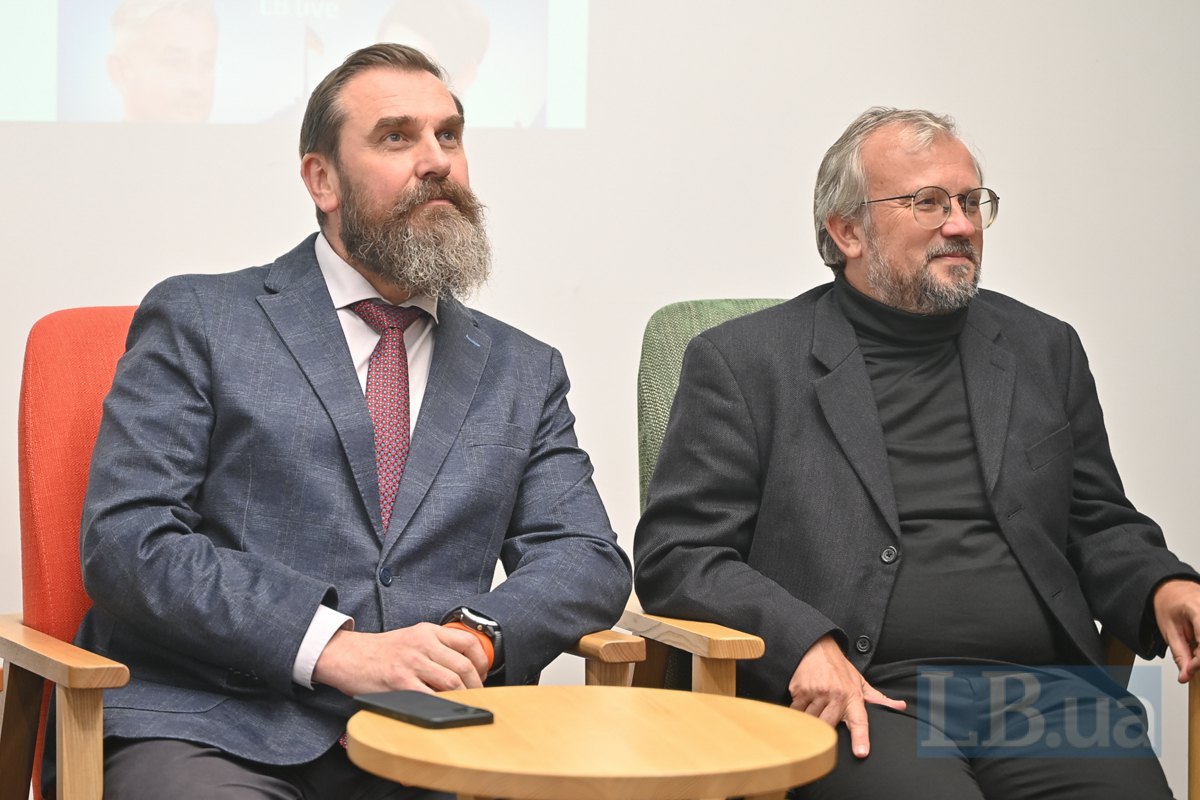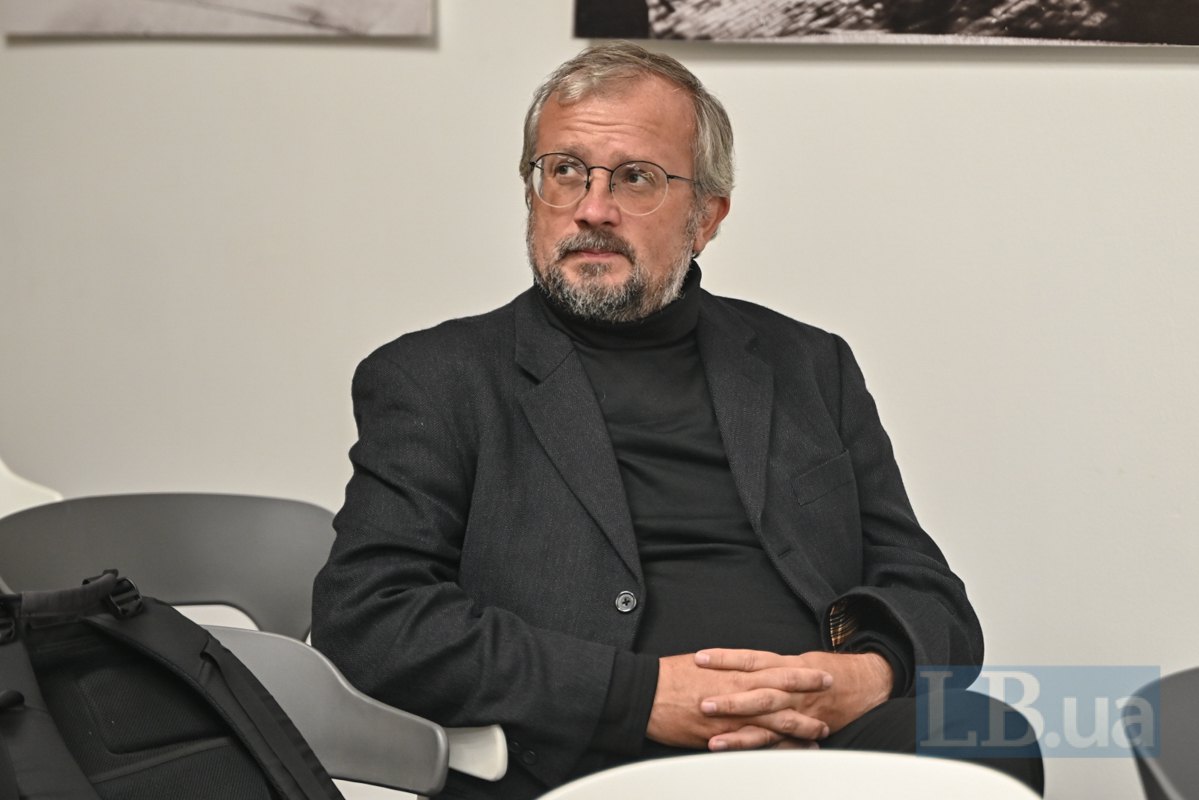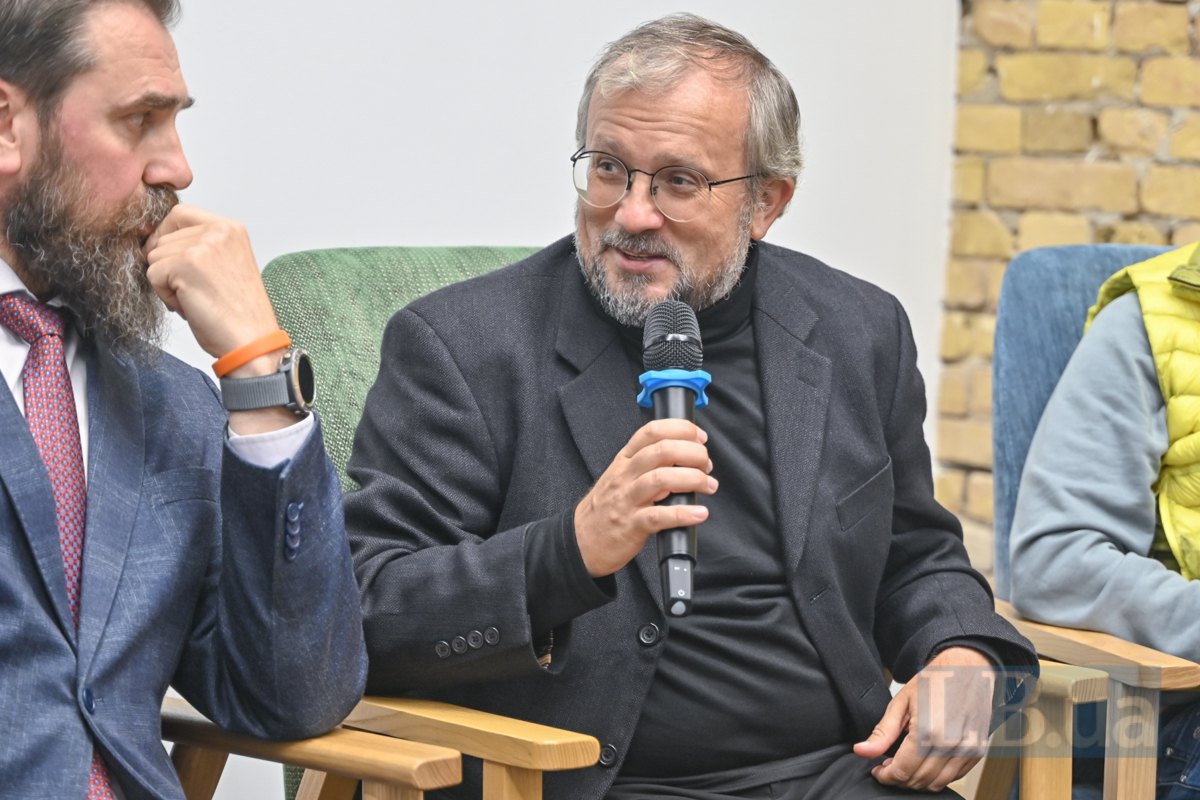
"We can allow trauma to swallow us up, to relax, to start forgiving ourselves for being traumatised. And we have the right to do so. We have the right to forgive ourselves and thereby sink lower and lower because of trauma. Many people do just that. Or trauma can help us to regroup, consolidate and make a leap forward," said Kyrylo Hovorun.
The professor illustrated how education can develop in deeply traumatised societies using the example of South American countries — Colombia and Chile, which were weakened by long-term civil wars and dictatorship.
"I have personal experience of teaching in these two countries (in Bogota and Santiago). Colombia is generally close to us in a number of ways. When I was at the University of Medellin, I was struck by an exhibition of drawings from the civil war era, which showed the atrocities committed by the FARC, a rebel group. And these are actually like our children's drawings, when children draw how the Russians are occupying Ukraine. The storylines and styles are the same. It felt like I was looking at a Ukrainian child's drawing. And at the same time, this university has developed into one of the best in Colombia, said Kyrylo Hovorun. In Chile, I taught at the Pontifical Catholic University. It is a private Catholic pontifical university. It is considered the best in South America overall. And so I saw, on the one hand, a traumatised society that had recently been in poverty due to civil war, and on the other, how they were able to turn this trauma into a significant leap forward in education."
Of course, the professor emphasises that this does not apply to all universities, but it demonstrates that the path to educational development exists even under the most difficult conditions.
He cited another example — the Democratic Republic of Congo, one of the least developed countries in Africa.
"It is generally dangerous to go out on the streets there. And yet there are excellent universities, a striking contrast to what is happening on the streets. For example, the National University in Kinshasa (the capital of Congo — Ed.) or even better than it, the Protestant and Catholic universities.
And this is also an example of a country that is still in the throes of civil war, traumatised by the colonial atrocities of King Leopold II, whom I often compare to Putin, because Leopold II also said that he was against colonialism and slavery, but he himself created the worst system of colonialism at the beginning of the 20th century. And, in fact, I say the same thing about Putin in Africa. Despite all this, it is a very positive example of how education can move society forward," said Kyrylo Hovorun.

According to him, universities in China have developed significantly over the past two decades, which contrasts with what is happening in the educational environment in Japan or the United States.
"I have probably taught the most at Chinese universities, more than twenty of them. And this is one of the most dynamic systems. I come to the same campus in Beijing a year or two later and don't recognise it: it has developed so rapidly that I simply get lost in it. Against this backdrop, the University of Tokyo (where I also recently had the opportunity to teach) looks as archaic as it did in the 1930s when the main buildings were constructed.
This is not to say that Japanese universities are worse than Chinese ones. But in Japanese universities, for example, they don't speak English. In Chinese universities, almost everyone does. When I started visiting Chinese universities 20 years ago, almost no one spoke English. The students were passive. The model for a university lecturer was that of a sage on the stage. You just talk like a Neo-Confucian scholar, you are treated like a demigod, and everyone is afraid to ask questions. Now students are super active, super engaged in discussion. Everyone speaks English perfectly," the professor noted.
He agrees that Chinese universities are a bad example because of the large investments made by the state, which at the same time blocks non-paternalistic thinking in students because it is not interested in it, and this is a kind of powerful brake on education. But this, says Hovorun, can also be seen as an example of how a country, a society, or an education system, starting from a low point where there is trauma, can use it as a powerful momentum for movement.

In contrast, the theologian believes that in developed countries we see stagnation and apathy in the system.
"I also teach a lot at American universities, I have travelled everywhere, and especially in the last year or two I have observed great stagnation, paralysis, simply. It seems that universities are paralysed by internal censorship. And this is a liberal Jesuit private university in Los Angeles. I see stagnation that I have not seen, for example, in South America. There, on the contrary, everything is very lively and dynamic.
There is a stereotype that, relatively speaking, money, government policy and the motivation of the universities themselves (because agency, so to speak, remains quite high in American universities) ensure development, but there is a factor of self-confidence and self-sufficiency that actually slows things down. And the factor of inferiority and low self-esteem, if it does not destroy people and society, can become a powerful point of growth," noted Kyrylo Hovorun.
In reforming the education sector, the Doctor of Philosophy believes it is important to transform it into a system of holistic education. The idea is that people should have the opportunity not only to specialise in something, but also to study a wide range of disciplines.
"To avoid Putin syndrome, for example. What is Putin's problem? He studied at the law faculty of Leningrad University. But it is obvious that he always had an interest in history. Since his specialisation was narrow — law — he could not realise himself as a historian. He was only able to do so when he had a little more time, when he became a dictator. But he became an amateur historian with the corresponding consequences.
If Putin had studied at a Jesuit university (just as an example, this applies to many other universities), he would have had the opportunity to choose not only law, but also history and theology. Not the theology preached to him by Kyrylo, but his own critical approach to theology. Then you couldn't fool him with the ‘Russian world’.
When there is a choice, as there is at Liberal Arts College, a person does not become perfect a priori or avoid the scenarios that Putin began to develop. But the possibility of such a scenario is minimised. I think it is very important for us, for Ukraine, to have the opportunity to educate students in this way — with the right to choose not only their specialisation, but also different disciplines. Then, perhaps, there would be no Putin," says Kyrylo Hovorun.

In addition, the professor cites the humanities component in education (in absolutely all disciplines, including STEM) as the foundation that can bind society, academia, and the university community together. In the United States, Hovorun notes, almost all universities teach philosophy or religious studies, which are provided by professional scholars united in relevant associations (for example, the American Academy of Religion with 10,000 members — Ed.).
"You know, scientists are now beginning to understand how the ancient Romans built their buildings without cement — the Colosseum, aqueducts, and so on. The thing is, they used a special mortar with chalk mixed in for the bricks, and when moisture gets in, the chalk restructures inside the mortar and allows it to hold all the loads that the structure takes on, despite the change in structure. Without any technology, this mortar binds all these elements together. I am in favour of humanitarian education and elements of humanitarian knowledge being such a binding force for Ukrainian society," said Kyrylo Hovorun.








